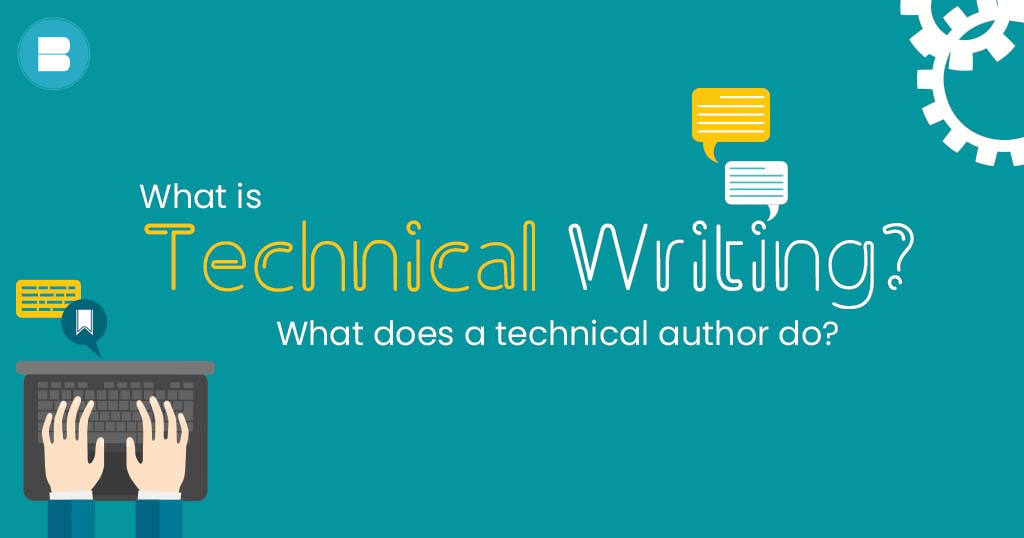Have you ever read a manual or a technical report and wondered how the author managed to explain complex concepts in such a simple way? That’s the magic of technical writing! Technical writing is a specialized form of writing that is used to explain technical or scientific ideas to a non-expert audience. It’s all about taking complicated concepts and breaking them down into easy-to-understand terms.
At its core, technical writing is about communicating complex information in a clear and concise manner. It involves using specialized language, formatting, and other tools to make information accessible to people who may not have the same level of expertise as the author. Technical writers may work on a variety of projects, including user manuals, product documentation, scientific reports, and more.
A technical author is someone who specializes in technical writing. They are experts in their field and are skilled at translating technical concepts into plain language. Technical authors may work in a variety of industries, including engineering, technology, healthcare, and more. They use their knowledge and expertise to create documents, reports, and other forms of written content that can be easily understood by a non-expert audience.
Some of the key skills that technical authors possess include excellent writing skills, the ability to research and analyze complex information, and a strong attention to detail. They must also be able to work with subject matter experts to gather information and ensure that the final product is accurate and effective.
Whether you’re reading a user manual for a new gadget or a scientific report on the latest research, chances are that a technical author was involved in creating that document. Technical writing is an important field that plays a vital role in making complex information accessible to everyone. So the next time you come across a technical document, take a moment to appreciate the skill and expertise that went into creating it!
Technical Writing
Technical writing involves creating documents that explain complex ideas, procedures, or concepts in a way that can be understood by people who are not experts in the field. Technical writing can take many different forms, including reports, manuals, user guides, white papers, and online help systems. Technical writers are responsible for creating documents that are clear, concise, and easy to understand.
Technical writing requires a specific set of skills, including strong writing abilities, attention to detail, and the ability to explain complex ideas in a simple and understandable way. Technical writers must also be able to work with subject matter experts to understand technical concepts and procedures and translate them into language that is accessible to a broader audience.
Technical Report Writing
Technical report writing is a type of technical writing that involves creating reports for scientific, technical, or business purposes. Technical reports can take many different forms, including research reports, feasibility studies, and project reports. Technical report writers must be able to gather and analyze data, present findings in a clear and concise manner, and make recommendations based on their findings.
Technical Content Writer
Technical content writers create content that is designed to inform, educate, or entertain readers about technical topics. Technical content writers must be able to explain complex concepts in a simple and understandable way. They must also be able to research technical topics and create content that is accurate, up-to-date, and relevant to their target audience.
Technical Writing Skills
Technical writing skills include the ability to write clearly and concisely, attention to detail, the ability to understand technical concepts and procedures, and the ability to work with subject matter experts. Technical writers must also be able to organize information in a logical and easy-to-understand manner and use tools and technologies to create and publish their documents.
Technical Author
A technical author is a type of technical writer who specializes in creating documentation for software applications, hardware products, and other technical products. Technical authors work closely with software developers, hardware engineers, and other technical professionals to understand the products they are documenting and create user manuals, help systems, and other documentation to support those products.
Technical Blog Writing
Technical blog writing is a type of technical content writing that involves creating blog posts about technical topics. Technical blog writers must be able to research technical topics, explain complex concepts in a simple and understandable way, and create engaging content that is relevant to their target audience. Technical blog writing is a great way to share technical knowledge, build an online community, and establish yourself as an expert in your field.
You may also read: Top 10 Best Leadership Books in Literature to Inspire Your Journey
What to keep in mind while technical writing?
When it comes to technical writing, there are several points that writers should keep in mind to ensure that their content is clear, concise, and effective. Here are some of the most important points to keep in mind while technical writing:
- Know your audience: Before you start writing, you should have a clear understanding of your audience. What are their needs and expectations? What level of technical knowledge do they have? Knowing your audience will help you tailor your writing to their specific needs.
- Keep it simple: Technical writing can often involve complex ideas and concepts, but that doesn’t mean your writing should be difficult to understand. Use simple language, avoid jargon, and explain technical terms and concepts clearly.
- Use a logical structure: Your writing should have a clear and logical structure that makes it easy for readers to follow. Use headings, subheadings, and bullet points to break up the text and make it more readable.
- Be concise: Technical writing should be concise and to the point. Avoid unnecessary words and phrases, and stick to the essential information.
- Use visuals: Visuals such as diagrams, graphs, and charts can help to illustrate complex concepts and make your writing more engaging.
- Edit and proofread: Once you’ve written your content, make sure to edit and proofread it carefully. Check for spelling and grammar errors, ensure that your writing is consistent, and make sure that the content is accurate and up-to-date.
By keeping these points in mind, technical writers can create content that is clear, concise, and effective.
Read: What is Synopsis? How to Write a Perfect Synopsis for Your Book.
Examples of Technical Writing in Literature -
Technical writing is a form of writing that is used to convey technical or scientific information in a clear and concise manner. It is generally not associated with literature, which is often considered to be more creative and expressive. However, there are examples of technical writing in literature that demonstrate the effectiveness of clear and precise communication in conveying complex ideas.
Jules Verne’s science fiction novels are a great example of how technical writing can be used in literature to create a sense of realism. In his works, Verne describes complex scientific concepts and technologies in detail, using technical writing to provide a level of accuracy and authenticity to his stories.
For instance, in “Twenty Thousand Leagues Under the Sea,” Verne uses technical writing to explain the workings of the Nautilus, the submarine in which the story takes place. He provides detailed descriptions of the submarine’s design, the mechanisms used to propel it, and the underwater environment that it navigates. This technical writing creates a sense of believability in the story, making it easier for readers to immerse themselves in the narrative.
Similarly, in “Journey to the Center of the Earth,” Verne uses technical writing to explain the geological and mineralogical concepts that the characters encounter on their journey. He provides detailed descriptions of rock formations, minerals, and other scientific phenomena, making the story more engaging and educational at the same time.
Another example of technical writing in literature can be found in the works of Mary Shelley.
In the novel “Frankenstein,” Mary Shelley’s use of technical language is significant in creating an atmosphere of realism and credibility in the scientific aspects of the story. The technical writing in the book serves to reinforce the scientific nature of the experiments being conducted by the main character, Victor Frankenstein, and his pursuit of creating life. Shelley provides detailed descriptions of scientific procedures, equipment, and anatomical terms to create a sense of accuracy and authenticity in the story.
For example, when Frankenstein describes the process of creating the monster, he uses technical language to explain how he collected and assembled various parts of the creature’s body. Shelley’s use of technical language in this passage emphasizes the scientific nature of the experiment and highlights the extent of Frankenstein’s knowledge and expertise in the field of biology.
Furthermore, the technical writing in “Frankenstein” helps to reinforce the theme of the novel, which is the dangers of playing with the unknown and the potential consequences of scientific advancement. The use of technical language in the novel emphasizes the significance of the scientific experiment being conducted, and the possible consequences that may result from it.
In addition to Verne and Shelley, there are many other examples of technical writing in literature. These include the works of H.G. Wells, Isaac Asimov, and Arthur C. Clarke, among others. While technical writing is not typically associated with literature, these examples demonstrate how effective technical writing can be in conveying complex ideas and creating a sense of realism in storytelling.
Read: Top 10 Tony Robbins Books That Inspire Success And Change
Conclusion
Technical writing is an essential skill for anyone who wants to communicate technical information to a non-technical audience. Technical writers must be able to understand complex technical concepts and procedures, translate them into language that is accessible to a broader audience, and use tools and technologies to create and publish their documents. Whether you are creating technical reports, user manuals, or blog posts, technical writing requires a specific set of skills and a commitment to clear, concise, and accurate communication.
















